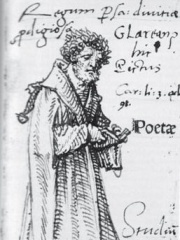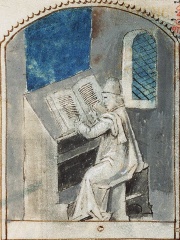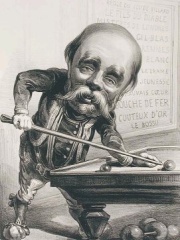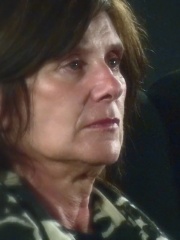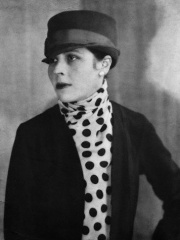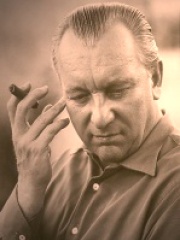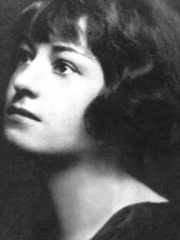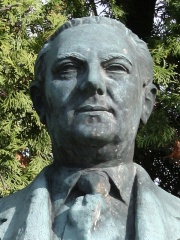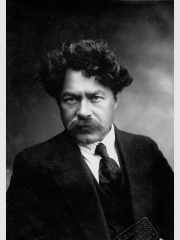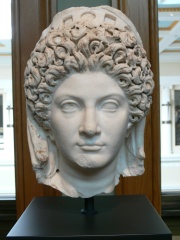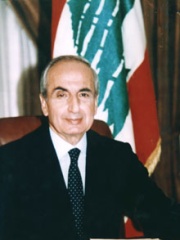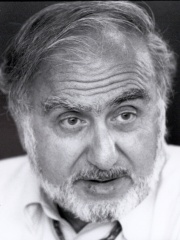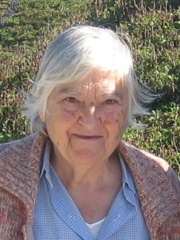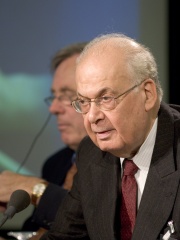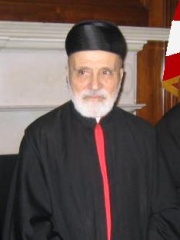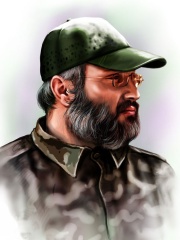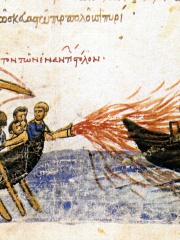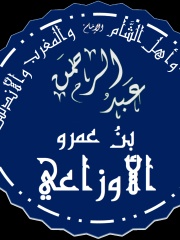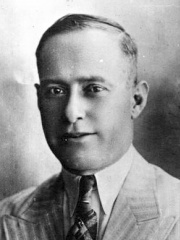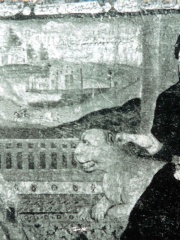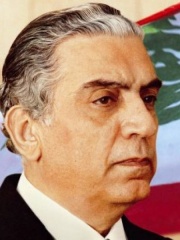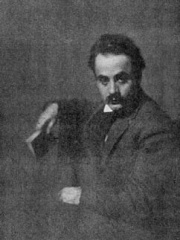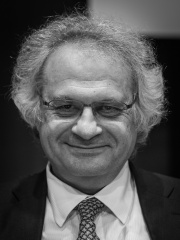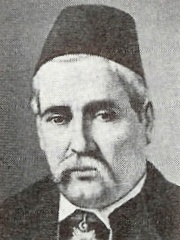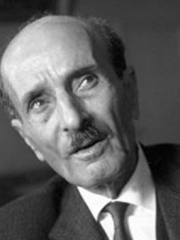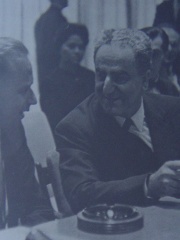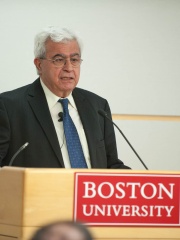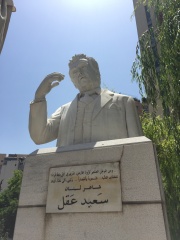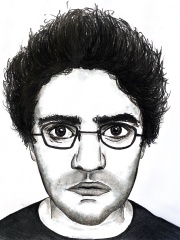Writer
Philo of Byblos
64 - 141

 Philo of Byblos
Philo of Byblos
Philo of Byblos (Ancient Greek: Φίλων Βύβλιος, Phílōn Býblios; Latin: Philo Byblius; c. 64 – 141), also known as Herennius Philon, was an antiquarian writer of grammatical, lexical and historical works in Greek. He is chiefly known for his Phoenician history assembled from the writings of Sanchuniathon. Read more on Wikipedia
His biography is available in 24 different languages on Wikipedia (up from 23 in 2024). Philo of Byblos is the 2,383rd most popular writer (up from 2,544th in 2024), the 68th most popular biography from Lebanon (up from 69th in 2019) and the 5th most popular Lebanese Writer.
Memorability Metrics
Page views of Philo of Byblos by language
Among Writers
Among writers, Philo of Byblos ranks 2,383 out of 7,302. Before him are Xenophon of Ephesus, Heinrich Glarean, Petrus Comestor, Paul Féval, père, Catherine Breillat, and Isaeus. After him are Djuna Barnes, Hans Hellmut Kirst, Tawfiq al-Hakim, Dorothy Parker, Vítězslav Nezval, and Shaul Tchernichovsky.
Most Popular Writers in Wikipedia
Go to all RankingsXenophon of Ephesus
101 - 300
HPI: 62.11
Rank: 2,377
Heinrich Glarean
1488 - 1563
HPI: 62.11
Rank: 2,378
Petrus Comestor
1100 - 1179
HPI: 62.11
Rank: 2,379
Paul Féval, père
1816 - 1887
HPI: 62.11
Rank: 2,380
Catherine Breillat
1948 - Present
HPI: 62.11
Rank: 2,381
Isaeus
420 BC - 340 BC
HPI: 62.10
Rank: 2,382
Philo of Byblos
64 - 141
HPI: 62.10
Rank: 2,383
Djuna Barnes
1892 - 1982
HPI: 62.09
Rank: 2,384
Hans Hellmut Kirst
1914 - 1989
HPI: 62.09
Rank: 2,385
Tawfiq al-Hakim
1898 - 1987
HPI: 62.09
Rank: 2,386
Dorothy Parker
1893 - 1967
HPI: 62.08
Rank: 2,387
Vítězslav Nezval
1900 - 1958
HPI: 62.08
Rank: 2,388
Shaul Tchernichovsky
1875 - 1943
HPI: 62.08
Rank: 2,389
Contemporaries
Among people born in 64, Philo of Byblos ranks 2. Before him is Julia Flavia. Among people deceased in 141, Philo of Byblos ranks 1. After him is Felix of Byzantium.
Others Born in 64
Go to all RankingsOthers Deceased in 141
Go to all RankingsPhilo of Byblos
WRITER
64 - 141
HPI: 62.10
Rank: 1
Felix of Byzantium
RELIGIOUS FIGURE
100 - 141
HPI: 58.19
Rank: 2
In Lebanon
Among people born in Lebanon, Philo of Byblos ranks 68 out of 145. Before him are René Moawad (1925), Nicolas Hayek (1928), Etel Adnan (1925), Selim Hoss (1929), Nasrallah Boutros Sfeir (1920), and Imad Mughniyah (1962). After him are Callinicus of Heliopolis (700), Abd al-Rahman al-Awza'i (707), Fawzi al-Qawuqji (1890), Samir Geagea (1952), Bahāʾ al-dīn al-ʿĀmilī (1547), and Élias Sarkis (1924).
Others born in Lebanon
Go to all RankingsRené Moawad
POLITICIAN
1925 - 1989
HPI: 62.59
Rank: 62
Nicolas Hayek
POLITICIAN
1928 - 2010
HPI: 62.54
Rank: 63
Etel Adnan
WRITER
1925 - 2021
HPI: 62.43
Rank: 64
Selim Hoss
POLITICIAN
1929 - 2024
HPI: 62.33
Rank: 65
Nasrallah Boutros Sfeir
RELIGIOUS FIGURE
1920 - 2019
HPI: 62.29
Rank: 66
Imad Mughniyah
POLITICIAN
1962 - 2008
HPI: 62.18
Rank: 67
Philo of Byblos
WRITER
64 - 141
HPI: 62.10
Rank: 68
Callinicus of Heliopolis
ARCHITECT
700 - 700
HPI: 62.09
Rank: 69
Abd al-Rahman al-Awza'i
RELIGIOUS FIGURE
707 - 774
HPI: 62.04
Rank: 70
Fawzi al-Qawuqji
MILITARY PERSONNEL
1890 - 1977
HPI: 61.38
Rank: 71
Samir Geagea
POLITICIAN
1952 - Present
HPI: 61.33
Rank: 72
Bahāʾ al-dīn al-ʿĀmilī
PHILOSOPHER
1547 - 1621
HPI: 61.20
Rank: 73
Élias Sarkis
POLITICIAN
1924 - 1985
HPI: 61.13
Rank: 74
Among Writers In Lebanon
Among writers born in Lebanon, Philo of Byblos ranks 5. Before him are Khalil Gibran (1883), Amin Maalouf (1949), Antipater of Sidon (-200), and Etel Adnan (1925). After him are Butrus al-Bustani (1819), Mikha'il Na'ima (1889), Charles Malik (1906), Elias Khoury (1948), Said Akl (1911), Sanchuniathon (-150), and Wajdi Mouawad (1968).
Khalil Gibran
1883 - 1931
HPI: 85.57
Rank: 1
Amin Maalouf
1949 - Present
HPI: 71.50
Rank: 2
Antipater of Sidon
200 BC - 100 BC
HPI: 64.83
Rank: 3
Etel Adnan
1925 - 2021
HPI: 62.43
Rank: 4
Philo of Byblos
64 - 141
HPI: 62.10
Rank: 5
Butrus al-Bustani
1819 - 1883
HPI: 59.58
Rank: 6
Mikha'il Na'ima
1889 - 1988
HPI: 58.95
Rank: 7
Charles Malik
1906 - 1987
HPI: 58.59
Rank: 8
Elias Khoury
1948 - 2024
HPI: 58.43
Rank: 9
Said Akl
1911 - 2014
HPI: 58.43
Rank: 10
Sanchuniathon
150 BC - 150 BC
HPI: 55.41
Rank: 11
Wajdi Mouawad
1968 - Present
HPI: 54.77
Rank: 12

